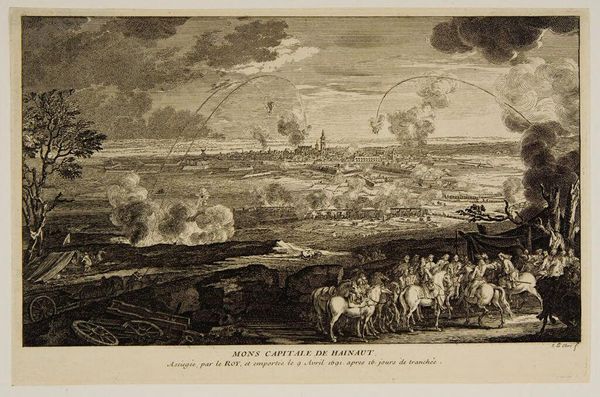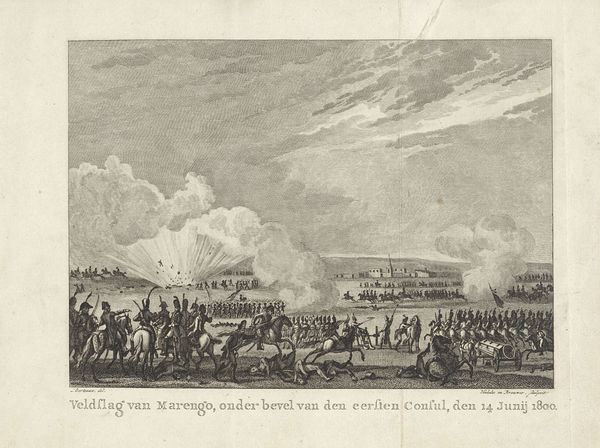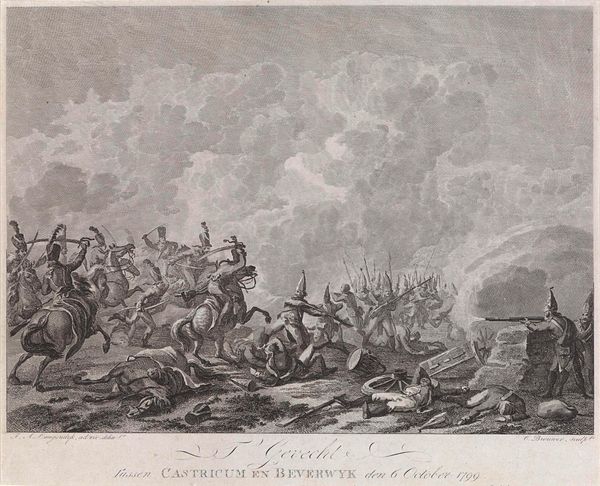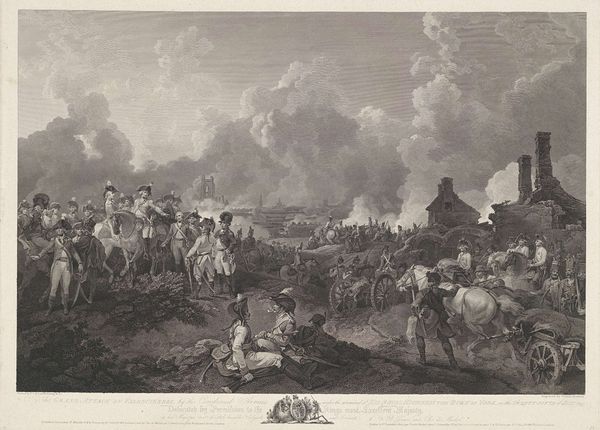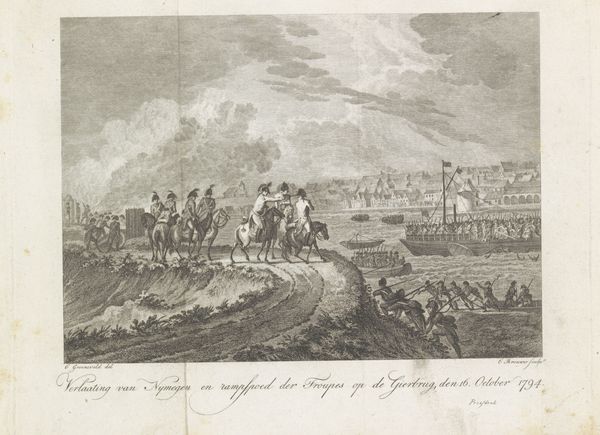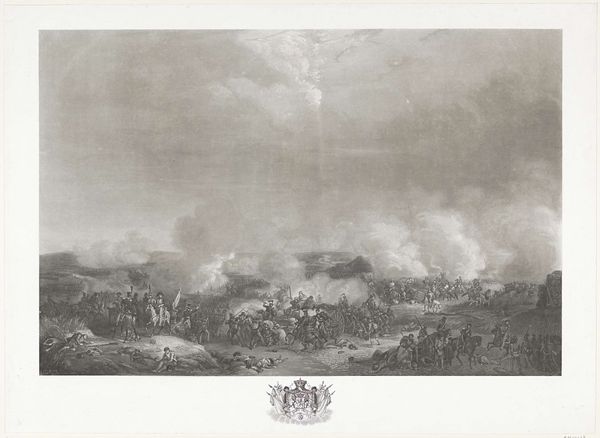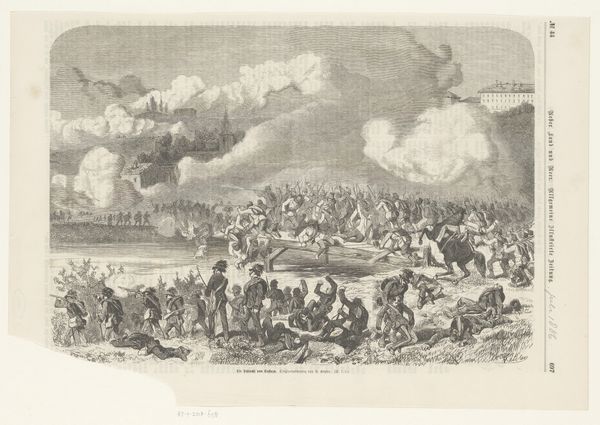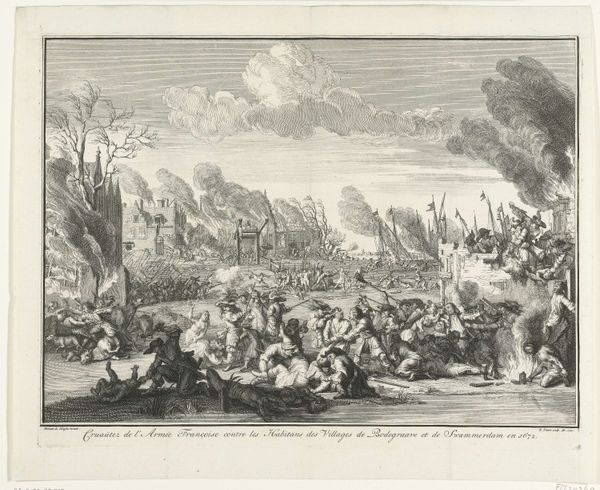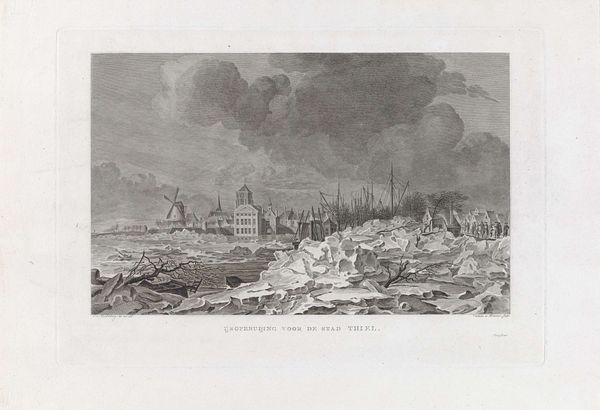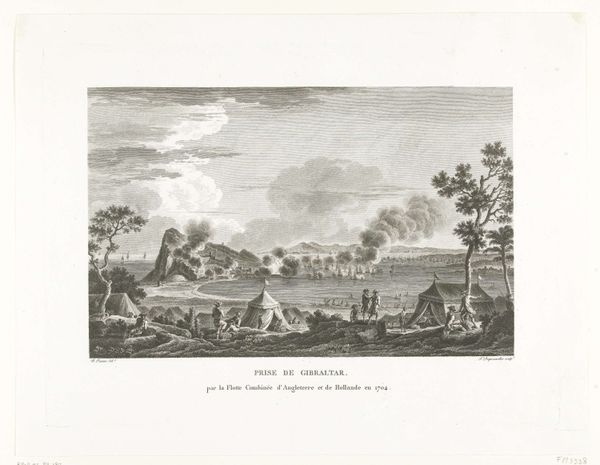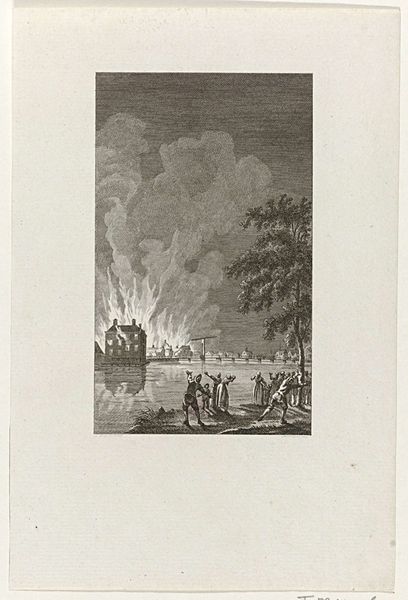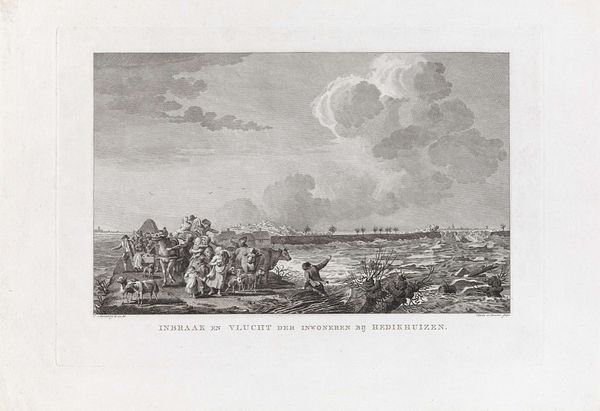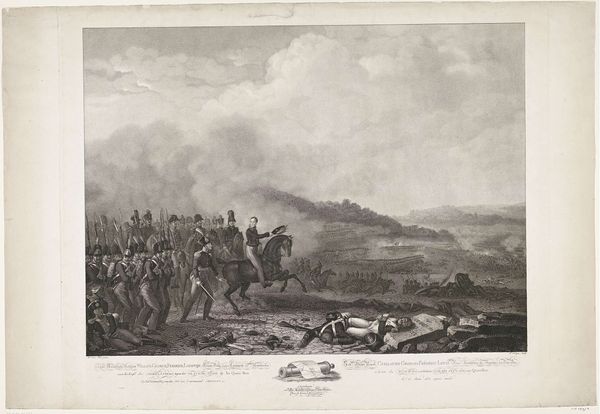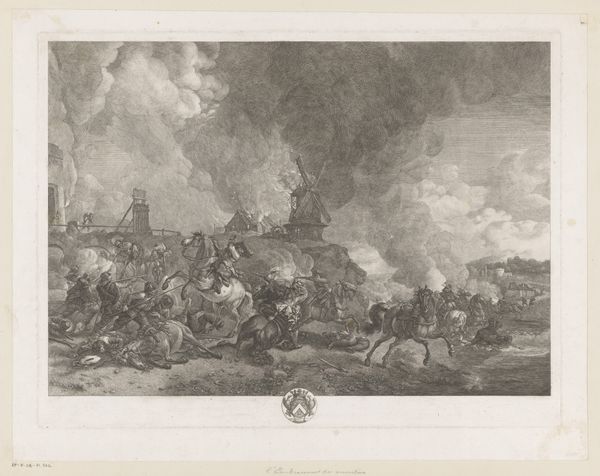
print, engraving
baroque
pen sketch
pencil sketch
old engraving style
landscape
line
cityscape
history-painting
engraving
Dimensions: height 171 mm, width 263 mm
Copyright: Rijks Museum: Open Domain
Editor: Here we have "Siege of Mons in Hainaut, 1691," an engraving by Sébastien Leclerc I. It's incredibly detailed. The lines are so precise. It’s hard to ignore all the activity depicted, but a lot of it looks quite similar. How would you interpret this work? Curator: Well, consider the city in the background. Cities, especially those under siege, were powerful symbols. Mons, as the text tells us, is the capital. Capital cities represent more than just location, right? They hold cultural and political power. See the smoke, the trajectory of the cannon fire. How might the repetitive nature of those marks emphasize the relentlessness of conflict, the constant assault on identity and order? Editor: I suppose the repetitive lines also speak to the lengthy time it took for the siege itself? Sixteen days is referenced in the text, I see. Curator: Exactly. The repetition creates a sense of duration, the unending struggle and the toll it takes. Now look at the figures in the foreground. Who are they? What do they represent in contrast to the chaos in the distance? Editor: They’re all on horseback…so perhaps figures of power and leadership watching the events unfold. Curator: Yes, the figures command a direct, safe vantage point. Leclerc invites the viewer to consider those individuals but also, to bear witness from a comfortable distance. It really reinforces this idea of history as spectacle. Editor: I see that now – almost as if he is both documenting history but also constructing a narrative of power. It really puts the “history” in history-painting. Thanks! Curator: My pleasure. The real treasures of art history are made visible when the eye of the present contemplates the past, when continuity and memory are discovered within them.
Comments
No comments
Be the first to comment and join the conversation on the ultimate creative platform.
